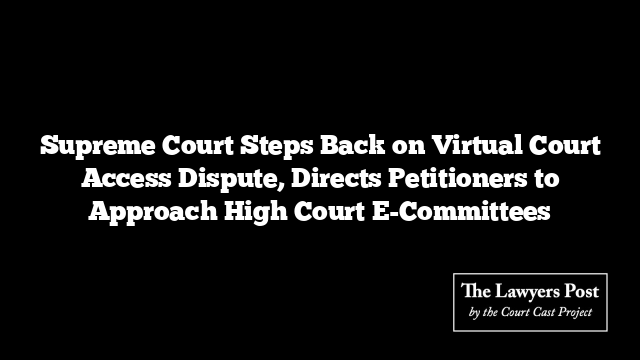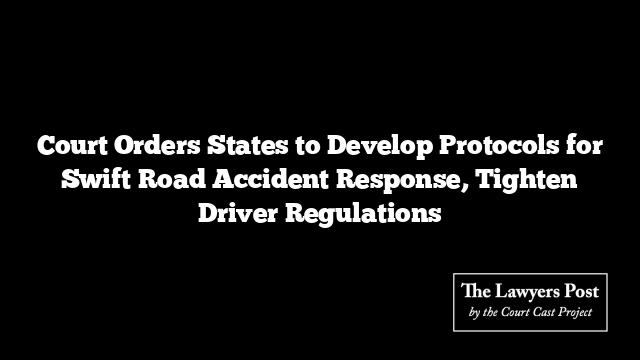In a significant move on Thursday, the Supreme Court concluded its involvement in a case that emerged during the COVID-19 pandemic, which sought the right to access court hearings through virtual platforms. The petition, which was filed by the All India Association of Jurists, raised concerns over limited access to video links and muted audio during virtual court proceedings.
The bench, led by Justices Vikram Nath and Sandeep Mehta, chose not to issue directives, emphasizing that the issue of restricted access to virtual hearings in High Courts should be handled administratively by the concerned High Courts and their respective e-committees, along with bodies like the National Court Management Systems (NCMS) and Supreme Court Management Systems (SCMS).
“This falls outside the scope of judicial intervention; it is an administrative matter,” remarked Justice Nath.
The Court, in its ruling, allowed the petitioners the freedom to approach the administrative committees with relevant details and documents, including any evidence supporting their grievances. However, the Court dismissed the idea of initiating contempt proceedings against High Court officials for non-compliance with earlier orders.
In what could be seen as a nod to the evolving nature of the case, the Court pointed out that while these issues had their roots in the pandemic, procedural changes had since taken place, signaling the shift in how the courts were operating.
The case had initially gained traction when the petitioners argued that restricting access to virtual hearings violated the Supreme Court’s 2018 ruling in Swapnil Tripathi v. Supreme Court of India, which endorsed live streaming of court proceedings to ensure transparency. The petitioners contended that restricting access to video links prevented lawyers and litigants from observing court proceedings, especially in matters of public interest, thus compromising the open court principle.
Despite the fervent push for virtual access, the bench chose to focus on administrative avenues for resolution, paving the way for the petitioners to seek redressal through the e-committees and other relevant bodies overseeing digital infrastructure and court access.




